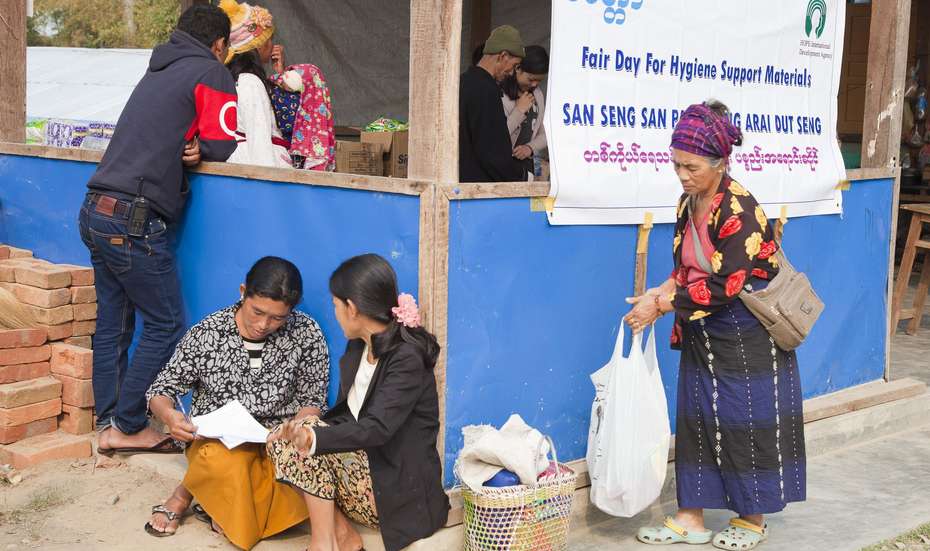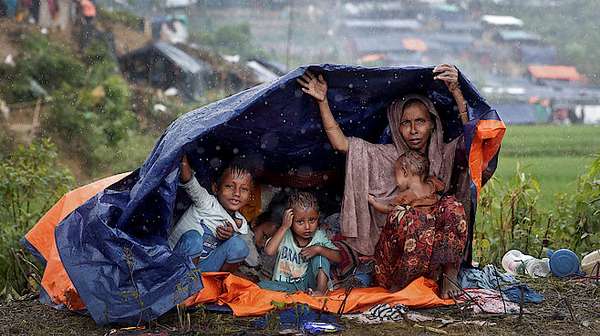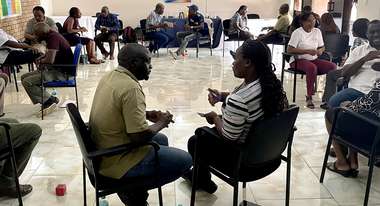Refugees & Migration
Refugees in Their Own Country
Prospects for ethnic minorities in Myanmar

A small hut of wood and bamboo: Daw Myig Tung Kaw and her family have only a few square metres of living space. She knows that they are lucky: their modest accommodations offer them safety – and even a bit of privacy. Daw Myig’s family belongs to one of the ethnic minorities in the multi-ethnic country of Myanmar and has been displaced within its homeland. This fate is currently shared by approximately 130,000 people.
Daw Myig had to leave her village head over heels in July 2011, when the violent confrontations between the rebel army fighting for more independence for their ethnic group and the government troops escalated. The villagers first fled to the surrounding forests and waited for the situation to de-escalate. They waited in vain. The military occupied their houses, leaving the smallholders to make their way toward an uncertain future.


They were finally accepted into a refugee camp in the city of Bhamo. Here, and at 40 other locations in eleven districts of the regions of Kachin and Northern Shan State, Welthungerhilfe and its local partner organisation Metta Development Foundation are providing basic aid to more than 15,000 internally displaced persons (IDP), preparing them for a future return to their home communities.
“We promote the people’s independence and support them in, for example, opening a kiosk or taking up pig farming,” explains Project Coordinator Lukas Frohofer. With a viable business idea and a well-conceived business plan, entrepreneurs can apply for micro-loans from a specially established fund. More than 1000 small enterprises are expected to receive such support over time.
How Welthungerhilfe Supports People in Myanmar
- Most camp residents are farmers who were able to make a living from the crops that they grew in their fields. Now, they depend on humanitarian assistance. Welthungerhilfe distributes food rations containing rice, legumes, cooking oil and salt.
- When many people live together in cramped conditions, infectious diseases can spread quickly. For this reason, Welthungerhilfe is offering comprehensive information sessions and distributing hygiene articles.
- Very few IDP find employment in the host communities. Everyday life in the camps is monotonous and frustrating. Classes on improved agricultural cultivation methods, animal husbandry and financial management offer new professional prospects.
- Vocational training offers prospects to young people. Their chances of finding employment were quite poor before now. Welthungerhilfe is currently arranging for more than 300 of them to be trained in local businesses, accepting the costs for education supplies and sessions and looking after the trainees during their apprenticeship.
Everyone Longs for Peace
The violent confrontations and the subsequent displacements have left deep scars. These are exacerbated by the cramped conditions in the camps, which also strain the host communities’ already scarce resources. Under expert care, victims can learn to process their experiences and simultaneously acquire conflict management strategies. Local residents are expressly invited to participate as well. Courses and training sessions are also being offered to all interested parties on the topics of violence against women, human rights, international law, disaster prevention and landmine protection.
When people will be able to return to their villages depends on the peace treaty negotiations. Not all conflict parties have signed yet. As soon as that happens, damaged schools, community centres and water supply systems will be rebuilt – fulfilling Daw Myig's fondest wish as well.






